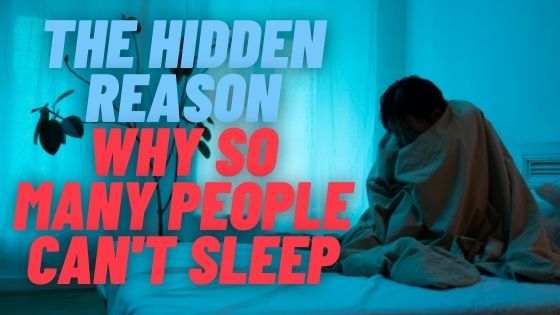The Hidden Reason Why So Many People Can’t Sleep

(~300 words, 3rd person)
Tossing, and turning, and tossing, and turning, and…oh, morning already?
Almost everyone has been there. There, being in the middle of a bed after a long day, but without the ability to get to sleep.
It’s miserable and frustrating, partially because of the mystery behind it. Even exhaustion isn’t enough to help us nod off in many cases.
What’s the cause? There are a few common suggestions you’ll find if you look up tips on how to get to sleep. Many people point to diet issues as the reason for sleeplessness. Others say it’s all about having a comfortable mattress.
How about screen time? Studies show it depletes melatonin, and thus makes it harder for us to sleep. Some say it’s more about the lighting, temperature, or noise in the area.
But what if you’ve tried everything? Clean diet, no screen time, and a perfect sleep atmosphere – you have it all, yet you still have trouble nodding off. Are you cursed? Maybe – but the explanation is less mystic and much more scientific.
One school of thought says sleep problems are genetic.
If researchers are correct, insomnia has a partially heritable nature to it. This would make sense, as insomnia has been linked to other conditions which are also thought to be partially genetic in their predisposition, such as major depression or even type 2 diabetes.
The positive thing about this discovery is that, in analyzing the genetic connection to the condition, researchers may also learn more about how to treat it.
There’s also the possibility that those victims of insomnia who do get treatment could potentially break the genetic chain, letting future generations escape the cycle of sleeplessness.
What do you think? Do you believe sleep problems can be genetic in nature? If so, will medical science be able to help the world sleep easier someday?

